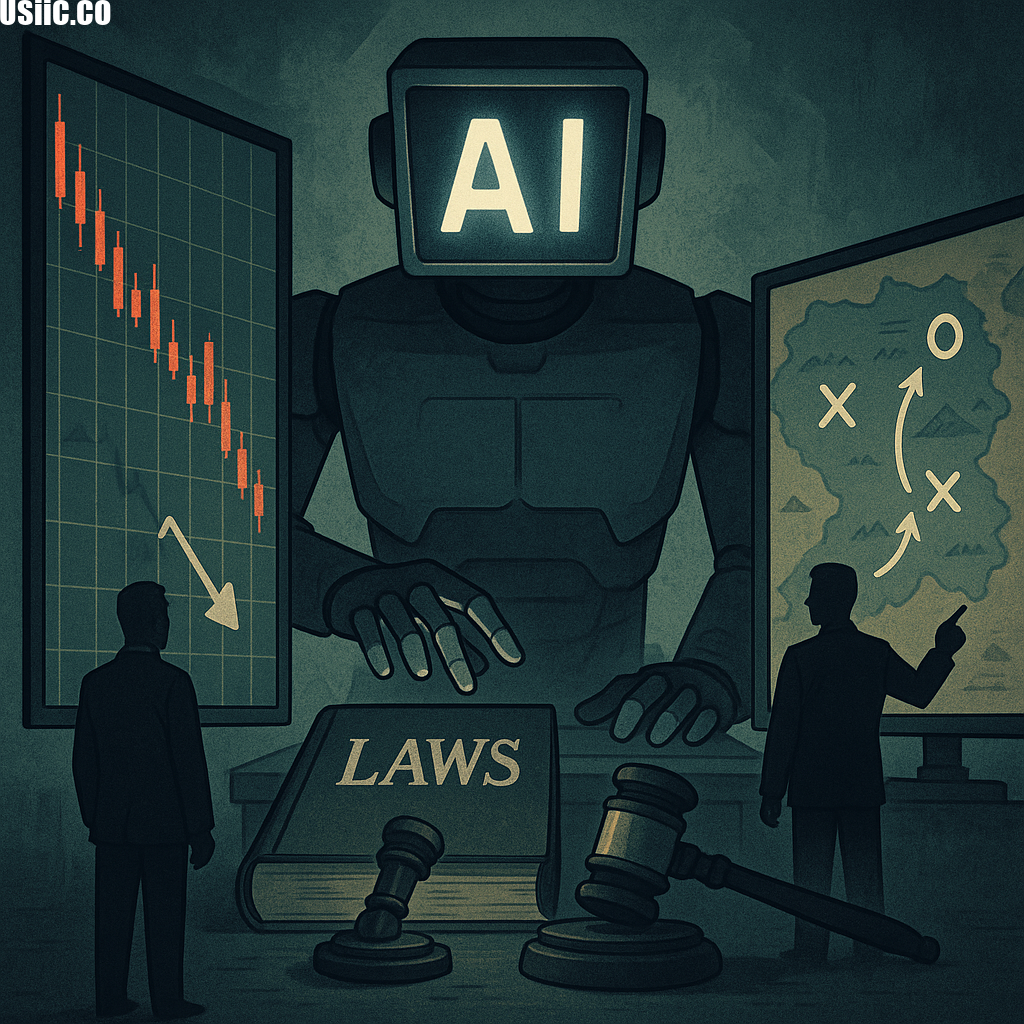Table of Contents
Artificial Intelligence (AI) is rapidly transforming critical areas of human activity. From automating routine tasks to managing complex systems, AI is showing potential to reshape the world. But what would happen if AI took over stock market trading, government lawmaking, and other strategic processes? Where would humans fit in, and could they compete with AI? Let’s explore possible scenarios and their implications.

AI in Stock Trading: Lightning Speed and Precision
Stock trading is a domain where speed, accuracy, and data analysis are paramount. Algorithmic trading already accounts for a significant portion of market activity. If AI fully controls trading, we can expect:
- Lightning-Fast Decisions. AI can process billions of data points per second, analyzing market trends, news, and even social media sentiment. This enables it to predict price movements with remarkable accuracy.
- Elimination of Human Bias. Emotions like fear or greed often lead to trading errors. AI, devoid of emotions, would act solely on data-driven insights.
- Risk of Systemic Failures. Overly autonomous AI systems could trigger catastrophic market crashes due to algorithmic errors or cyberattacks, as seen in past “flash crashes.”
Human Role: Humans would likely shift from direct trading to overseeing AI systems, developing strategies, and ensuring ethical compliance. Competing with AI in speed and data analysis, however, would be nearly impossible.
AI in Lawmaking: Objectivity or Threat?
Imagine AI drafting laws. While it sounds like science fiction, algorithms are already used to analyze legislative proposals and predict their outcomes. If AI becomes the primary lawmaker, we might see:
- High Efficiency. AI could analyze vast datasets—from crime statistics to economic indicators—to propose laws optimized for societal benefit.
- Ethical Dilemmas. Who would define the values guiding AI’s laws? If programmed to prioritize economic gain, AI might overlook social justice.
- Erosion of Political Power. If AI dominates lawmaking, the role of parliaments and public participation could diminish significantly.
Human Role: Humans would remain essential in setting moral and ethical frameworks for AI. Politicians and civic leaders would define priorities, while AI translates them into actionable policies. Without deep AI expertise, however, influencing this process would be challenging.
AI in Strategic Processes: Optimization vs. Control
Strategic processes like economic planning, defense, or infrastructure management require a holistic approach. AI is already used for scenario modeling and decision optimization. If it takes full control, we could see:
- Resource Optimization. AI could allocate resources efficiently, minimize waste, and predict crises with precision.
- Loss of Flexibility. Despite its power, AI may be limited by the data it’s trained on. Unforeseen situations requiring intuition could pose challenges.
- Technological Dependency. Full reliance on AI would make society vulnerable to system failures or manipulations.
Human Role: Humans would act as “strategists,” setting long-term goals and values. Experts in AI, ethics, and cybersecurity would be critical for monitoring and refining AI’s actions.
Can Humans Compete with AI?
Competing with AI in areas requiring speed, precision, and big data processing is nearly impossible. However, humans possess unique qualities that AI cannot yet replicate:
- Creativity. AI can generate ideas based on data, but true innovation and out-of-the-box thinking remain human strengths.
- Empathy and Ethics. AI cannot experience emotions or grasp moral dilemmas the way humans do.
- Intuition. In situations with incomplete information, humans often rely on intuition, which AI struggles to emulate.
To stay competitive, humans must develop skills that complement AI, such as critical thinking, interdisciplinary knowledge, and technological literacy.
The Future with AI: Symbiosis or Subordination?
The most likely scenario is a symbiosis between AI and humans. AI would handle tasks requiring computational power, while humans set directions, ensure ethical standards, and contribute creative ideas. To achieve this, we need:
- Education. People must acquire skills to work alongside AI, including programming, data analysis, and technology ethics.
- Regulation. Strict frameworks for AI use in critical domains would prevent misuse and ensure accountability.
- Adaptability. Society must be ready to embrace a world where AI plays a central role.
Conclusion
AI controlling stock trading, lawmaking, and strategic processes could usher in unprecedented efficiency but also poses significant challenges. Humans cannot compete with AI in speed or precision, but their unique qualities—creativity, empathy, and intuition—will remain indispensable. The future hinges on how effectively we integrate AI into society while preserving human control and values.
Keywords: AI, artificial intelligence, stock trading, lawmaking, strategic processes, human-AI competition, AI future, human-AI symbiosis.



